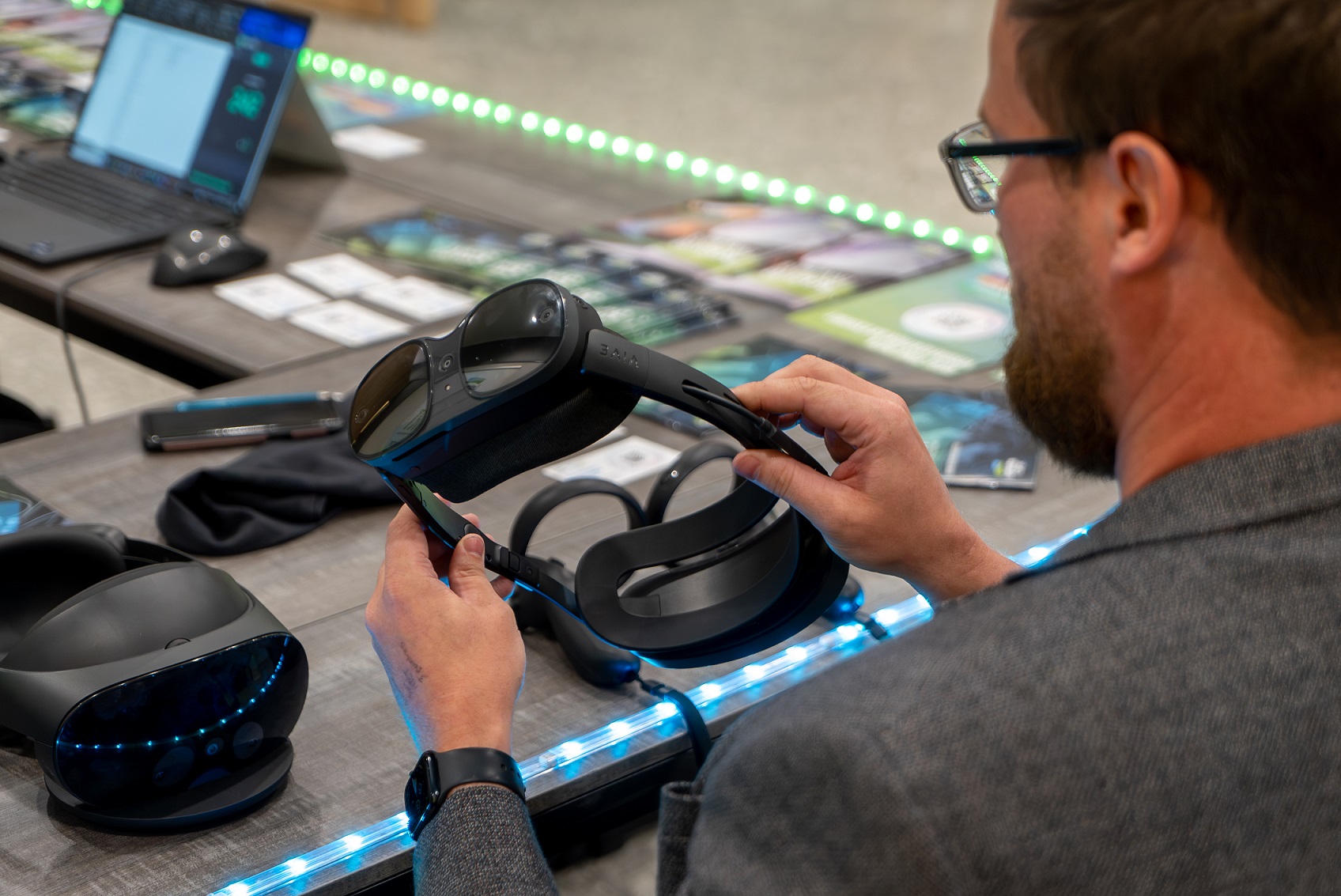
Lethbridge College has received a significant boost toward its vision of making Alberta a global leader in virtual and augmented reality. Alberta Innovates announced that the college has received a $709,202 grant as part of the Ecosystem Development Partnerships program. The grant will help the college’s Spatial Technologies Applied Research and Training (START) Centre serve as a provincial hub for Alberta’s extended reality (XR) technology, services and operations.
The Ecosystem Development Partnerships program is designed to enhance Alberta’s research and innovation ecosystem by collaborating with multiple organizations through research, activities and products aimed at giving the province a competitive advantage in innovation and emerging technologies. The program’s goals align with what the college set out to do when it launched the Lethbridge College START Centre in March 2023.
“Our vision for START is to help position Alberta as a key driver within the XR space, both nationally and globally, resulting in the subsequent creation and growth of companies within the province and the retention of top technical talent,” says Andrew Dunlop, director of applied research operations. “It will also serve companies looking to incorporate spatial technology into their workflows, such as first responders and those working in trades, health care and more.”
START partners with industry and organizations to conduct applied research and development, offer technical services and consulting, and provide training and education in XR. The START Centre also provides access to state-of-the art equipment including motion capture, an omnidirectional treadmill, and a VR driving simulator.
Mike McCready, START industry liaison and research advisor, says the START Centre serves as a connector, leveraging the strengths of partners to accelerate ideas. This funding from the Ecosystem Development Partnerships program will allow an acceleration of XR support for Alberta-based organizations and the industry ecosystem, including the development of talent.
“We're in the next wave of digital transformation,” says McCready. “Connecting to people, places and objects in a spatial manner will make for more authentic and enriching experiences. We strive to help Alberta organizations prepare for this revolution through education, research and consultation. We aren’t responding to these changes – we’re driving opportunities, helping to position Canada as a leader in spatial technologies.”
Extended reality (XR) refers to both virtual reality (VR), which includes entirely computer-generated, immersive experiences; and augmented reality (AR), which combines digital and real-world elements. Through VR and AR, people can experience remote places, train for high-risk situations in a low-risk environment, and gain empathy through immersion in another person’s perspective. START research projects include creating VR scenarios for a variety of situations, such as providing caregivers with a VR environment to practice their responses to dementia patients; providing a safe VR environment for high-risk utilities technician training; and developing a VR visit to the dinosaur tracks in Grande Cache, Alta., which are not otherwise accessible to tourists.
The START team plans to facilitate an Alberta-wide XR hackathon in 2024 that will connect people in high school, post-secondary institutions and industry with the goal of promoting XR as a career path and increasing the talent pool in Alberta.
START is one of five research groups in the Centre for Applied Research, Innovation and Entrepreneurship (CARIE) at Lethbridge College, which ranks 16th in the annual Research Infosource ranking of Canada’s top 50 research colleges. CARIE is a catalyst for economic growth, sustainability and social development in the region through its work in XR technology, agriculture, aquaculture, irrigation and public safety. Learn more about CARIE’s applied research projects in the 2022-23 CARIE Report.